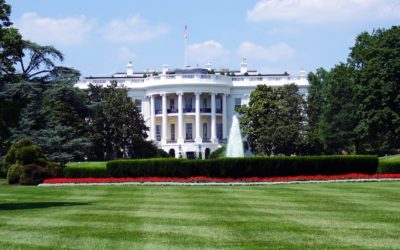Fighting the Battle of Good Versus Evil Where it Costs the Least
Political issues are often spoken about in terms of good versus evil. Usually, there is a bit of “tongue in cheek” to these statements as they primarily work to motivate the political base or tweak the opponent. Normally, these are just harmless hyperbolic statements used in colourful debate; no real harm is done. That is not the case in the emerging trend of filling up social media space with apocalyptical spirituality, intertwined with dismissive political ideology. This rhetoric, in its starkest form, is coming directly from conservative fundamentalist interpretations of the Bible, and it completely misses the mark.
When the Christian Church split in the 1500s (what is known as the Reformation Period), the western world was left with two large branches of Christianity. Catholicism is the traditional trunk from which the Protestant denominations spread. Within these Protestant traditions, more fracturing occurred as various theologians interpreted and emphasized parts of scripture differently from each other. The Protestant movement, at the time, was seen to be liberal (in the sense of going against tradition), yet it gained a worldwide following.
In the late 19th Century and into the early 20th, the Protestant denominations faced a type of reformation movement from within. A number of believers spread amongst the denominations felt that the established Protestant churches were becoming too liberal. Churches were beginning to interpret Scripture based on science and the ethics of the day. This use of modern and changeable knowledge was contrary to the Fundamentalists’ conservative approach to the interpretation of scripture. They believed that the Bible was inerrant and to reinterpret the words of Scripture based on humanity’s changing understanding of the world would lead people astray. These churches championed a strict personal moral code and a strict adherence to a literal interpretation of the whole of Scripture.
The popular acceptance and growth of Pentecostal, Baptist and non-denominational churches are a direct result of this process. Elements of their teachings and interpretations are found, to varying degrees, in other Protestant denominations as well. Two overarching thoughts inform this world view. The first is a general belief that humanity is currently living in the end times – shortly before Christ returns to purify the world and condemn the unbelievers. This creates a sense of urgency to save as many souls as possible before judgement comes to the world. The second is an adherence to a strict moral code as defined by their interpretation of Scripture. This moral code implies a belief that God will reward the believer, and even the nation, if they measure up. To this end, it is of utmost importance to directly shape the laws of the land. With this belief system, it is a sort of credit to the nation if unbelievers also have to follow laws and conduct themselves in ways that are believed to be in accordance with God’s desires.
Many Christians who hold this world view today are positioning the upcoming U.S. election, not simply as a battle between good versus evil but, specifically, as a choice between God and Satan. This is powerful imagery, with real-world implications. Once a Christian begins to define human political choices as being part of a heavenly struggle, that Christian is given license to denigrate and dismiss the people and ideas that they do not agree with. It allows those who believe they are firmly on God’s side to become blind to political compromise and inflexible in their treatment of other humans. Their feet, they believe, are firmly planted in God’s ground; therefore anyone who does not stand with them stands in opposition to Him.
This stark view of God’s will vs Satan’s rebellion, the ultimate embodiment of good versus evil, condenses belief into an easy binary of black and white, right and wrong choices that fuel a superior moral self-image. It is shocking, however, that those so convinced that their interpretation of Scripture is correct, those who adhere so closely to a “literal” reading of the Bible, would be so off base where they see Satan at work in the political choices of today. They are so blinded by the desire to impose their moral system on everyone else that they can not even begin to fathom the possibility that they have lost their way.
In 2020, most of this rhetoric is directed at the Democrats from supporters of Donald Trump. In recent American History, The Republican Party has tended to attract religious conservatives. Over the past 50 years or so their public message has morphed from the message of the “Moral Majority” to a more multifaceted philosophy that intertwines beliefs around Guns, Property, Liberty, and Freedom of Religion. This group of Christians tends to believe that anything that limits their rights in regards to the first three of those things is a prelude to an attack on the fourth, Freedom of Religion.
Most of today’s issues, however, are not issues that concern the Bible or, more simply, Jesus. Jesus was not sent to Earth to reform governments, which are human creations, but to reform hearts. Jesus did not command His disciples to go out and take over government institutions to impose their ideals. Jesus did not make claims that earthly nations that follow the Christian recipe would be raised above all others. It’s simply not in the Book.
More to the point, Jesus did not command that his followers should impose their will and their morality on others. Following His teachings has always been a choice. Once a person becomes a Believer, they adopt certain expectations of how to live and how to treat people. These expectations are personal, one on one; a personal relationship with God being mirrored in personal relationships with people. This is not to say that a Christian wouldn’t bring their values and world view to work with them and fight for what they believe is right. However, there should be an understanding that government and politics are human endeavors and not at all central to the teachings of Christ.
In 2020, there is a belief amongst some Christians that President Trump is the best hope against the erosion of gun rights. While Trump may be the most pro-gun candidate in response to the Democrats, this is a purely human struggle. Jesus has nothing to say about a heavenly right to bear arms. He never says that for the purpose of a well-regulated militia, everyone should have their own spear. One could argue that the same Man who said to put all of your faith and trust in Him would probably not champion the purchase and use of weapons for the defense of one’s home. Shooting the intruder while defending what is “mine” goes counter to the clear and direct teaching to “turn the other cheek”. Not to mention that, if the story of Job is to be believed, it is God’s purview to give material blessings and take them away. What agents He uses to give and take would be up to Him, it would seem.
Christ’s view of property was not central to His ministry, with the exception that the more a person has, the harder it is to get into Heaven. Conceptually, riches distract from doing what is the work of the Father. Money and possessions are not evil in and of themselves but how a person uses them, how a person allows them to distract from doing the work of the Kingdom, can be. There is little upside in owning property, in Christ’s view. Nowhere does Jesus ever say to go out and build up riches on Earth. His message is the exact opposite. He calls His disciples to leave their occupations and follow Him. He tells a rich man to sell all of his possessions. Scripture is quite clear that the blessings one receives, both spiritual and material, are from God and not from man. Christ does not advocate the Trump model of wealth acquisition. Ever.
The concept of Liberty, in the modern western political sense, is also absent from Jesus’ teachings. He never tells slave owners to free their slaves. He never pushes His believers to try to liberate themselves from Rome, a completely pagan government. Personal liberty, to live as free people, is a good thing, its progress advanced by humanity over the long march of time. If, as Christians believe, all people are created in the image of God, then liberty is a more desired state than one of servitude. It’s just never addressed by Jesus. His message is centered around what you do with what you are given, both blessings and tribulations.
Finally, we must consider the concept of Freedom of Religion, yet another “right” for which Jesus is silent. His movement, which eventually became Christianity, was born in a time where freedom of religion, as defined in modern times, was not even a thought yet. The Roman government, along with its pagan pantheon, was the religion. Romans were quite willing to accept religions that deviated from this as long as they did not contradict the notion that Ceasar was also a god. Christ, of course, rejected this belief which would eventually make his followers, the early Christian Church, an outlaw religion. Jesus also clearly stated that Christians would suffer because of their belief in Him and that this suffering was a credit to them. There was no concept of carving out space where Christians could safely worship. They had to exist in the cultural and governmental framework of the time.
One frightening aspect of the fundamentalist concept of Freedom of Religion, found in the First Amendment of the U.S Constitution, is that, generally, what they want is freedom for themselves to worship how they want while imposing their moral codes on the rest of the United States. This is born out in the claim that America is a ‘Christian Nation” and therefore the laws must be based on Biblical principles. Fundamentalist Christians willfully ignore the fact that while the U.S. may have been built by founding fathers who claimed an affinity to western-style Christian morality, the intervening years have brought a wealth of different perspectives and cultures. Systems of belief that, by law, should receive equal protection under the first amendment, or that have ideals that may make it into law, are often targeted to be quashed.
Christians that reject the belief that government is essentially a secular institution also tend to see government as a tool to impose their moral code on others. Often, this happens through laws that address private behavior that does not harm society or other individuals. The Temperance and Prohibition movements of the early 1900s were a direct result of this mindset. Today it is evident in legislation around personal drug use and sex laws between consenting adults. There are still counties in the United States that are “dry” and where the purchase of alcohol is restricted or even prohibited. It is the reason that books get banned in school systems and public libraries. It is also the motive behind arguments over if, how, and when to teach sex education in the school system. It is part of the reason that there is often huge pushback when minority ethnic groups try to have some of their ideals codified into law. The rationale here is that, as Christians, they can’t abide by a government that allows people to choose for themselves because too many people will choose “wrong.” That will make God angry.
This is a problem for many Fundamentalist Christians who believe that when God gets angry, He causes your nation to fail by removing His favor. In many cases, moral code legislation is an attempt to placate God and keep the U.S. on His good side. This is a shortsighted view that ignores national history. If strength and prosperity are signs of God’s favor, it would be logical to conclude that He was showing favor to the United States while it was screwing over and annihilating Native American populations. It would be logical to conclude that His favor was lavished on the U.S. as it was enslaving millions from Africa while denying them education and basic human rights. It would be logical to conclude that His favor was surely in play when the politicians at the outset of American History disenfranchised the majority of the population when they made sure that people had to be rich, white, and male in order to have a say in state and national governments. Over time, U.S prosperity grew, which means God must have been pleased with the Robber Barons of the 1890s and with the discrimination and Jim Crow laws up through the 1970s.
The concept of the “divine favored nation status” also fails the test of history. In the Old Testament, scripture shows God interacting with the nations of Israel and Judah as his chosen people. The writers of those stories understood the rise and fall of their nation as being directly related to the favor or displeasure God showed them. Those ancient writers, and many of today’s believers, ignore the fact that Judah and Israel were small nations. They existed, possibly because of God’s will but, almost certainly because they escaped the conquering attention of far bigger and mightier nations. Egypt, Babylon, and Assyria were all vastly larger powers than the nations of Israel and Judah combined. And yes, those empires fell, but so did Israel and Judah while never attaining the power or influence of their larger neighbors. It is a curious historical twist that Rome’s decline began roughly 700 years into its history and corresponds with the rise and acceptance of Christianity as the national religion.
Government should be understood by Christians to be a human construct even if it does derive its authority from God. Scripture does not lay out a preferred system of government for a Godly nation to follow. Outside of the ancient nation of Israel God does not reward or deny modern nations simply based on the numbers of unbelievers or people following His moral code. The pattern of History is one of ascending to some degree of power which then eventually leads to a general decline. This process repeats itself throughout time all around the world without any correlation to political or social culture or, indeed, religious belief.
In the final analysis, Satan seems to find fertile ground equally within the policies of any political party. Aspects of socialism can exist within a Christian worldview; in fact, many of the early followers of Jesus practiced a form of community that had many socialist aspects. Socialism that denies God and seeks a purely human source for its morals would be anti-Christian. Capitalism, which encourages personal productivity (which is a sound Biblical concept) also encourages greed, waste, and jealousy. These are decidedly not what Jesus taught.
If a person believes that abortion is murder, then believing abortion to be evil is completely correct. It is also a form of true evil to live with willful blindness: ignoring the plight of the poor or refusing to help those whose values don’t equal one’s own. “Winning” at business at all costs is a form of evil as well. So too is the belief that being rich and famous means that a person can do anything they want, as Mr. Trump famously boasts. Christ was quite clear that demonstrating a person’s love for Him would be manifest in their love for the poor, the downtrodden, and even their enemies.
Yes, the political struggle is, on some level, a struggle between good versus evil, but that struggle is not won or lost in the vagaries of the institution of government. The battle needs to be fought in the hearts of believers. Churches, and the believers that fill them, need to reject their human need to feel morally superior to others. They should be building systems outside of government that actively seek to help people physically, financially, and mentally without regard to the lifestyle or beliefs of those in need. This will allow Christians to win the hearts of those they serve and, surely, many minds and spirits will follow.
Christ demonstrated a ministry of service, humbleness, and perseverance to his followers. His actions were just as important as His words. He was clear that humanity would have a choice to follow Him or not and to reject Him was to suffer eternal consequences. The Beatitudes, found in His Sermon on the Mount, are the simplest and clearest statements of the desired traits of His followers. Measure not only the candidates but also their supporters by those words. If people are to follow Jesus’ teachings, then mocking, threatening, dismissing, and demeaning others can have no place in the Christian’s political life. Those things can only serve the side of evil.
Voting Republican or Democrat is not where the real battle between God and Satan lies. The entirety of their plans and ideas will contain elements of both good versus evil. The real battle lies within our hearts, and its outcome demonstrated by our words and actions.









0 Comments